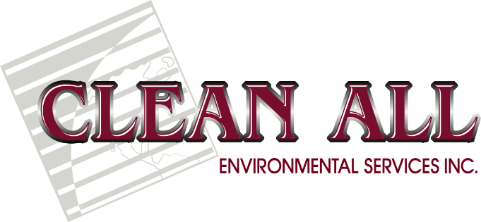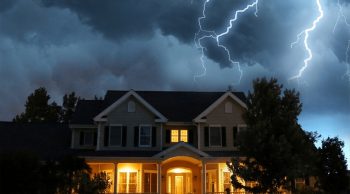Health Risks You May Face When You Return Home After a Storm
Any natural catastrophe may be terrible to endure as a homeowner. However, once the winds have dropped and the weather has returned to normal, you still have to deal with the issue of repairing and restoring your property.
However, storm cleaning entails managing severe health concerns, including water pollution, waterborne illnesses, and microbial development that might put you and your loved ones in danger from storm damage.
Once you have permission to enter your house again, it is wise to use caution around the following storm damage and health risks. By doing this, you may start the water damage restoration process safely while also keeping yourself and your loved ones out of harm’s way.
Contaminated Water
Your home can be surrounded by floodwater after a hurricane or other severe event. However, remember that floodwater is frequently polluted with sewage and dangerous chemicals before attempting to remove standing water or clean up the damaged area. Occasionally, it could include harmful pathogens like cholera and E. coli and projectiles like glass and metal fragments.
In addition to this, it’s important to take precautions with your drinking water. Heavy rainstorms have the potential to uproot trees and destroy water lines, which sewage overflows would quickly contaminate.
Storm-Related Flood Damage
After a storm, flood damage can seriously endanger your home’s safety. Even the most durable structures can be destroyed by flash floods, while storm waves can erode roadways and harm nearby buildings.
It’s also critical to be knowledgeable about debris flow afterwards. This swiftly moving landslide frequently occurs without prior notice and transports large rocks, heavy mud, and plant matter. It has the power to uproot trees, wash away cars, and demolish homes.
Mold and Microbial Growth
One of the most important health risks that any homeowner should be aware of is mold. This is due to the fact that it may begin to develop within 72 hours of the water entering your house and won’t stop unless it is properly controlled and removed.
Also, mold exposure can have several adverse health implications, particularly for people with respiratory diseases, compromised immune systems, or other health issues. A few symptoms that vulnerable people may encounter include allergic responses, respiratory problems, headaches, and weariness.
It’s advisable to hire professional mold inspection and remediation services as soon as you can because postponing mold removal might endanger you and your loved ones. To treat the moisture issue at its source and eliminate mold from your house, experts know to adhere to a tried-and-true drying and dehumidification technique.
Lightning Damage
When lightning strikes a house during a storm, electricity frequently flows through the building’s wiring. As a result, any electrical device plugged into an outlet, such as a phone, computer, or kitchen appliance, gets harmed. Steel buildings, telephone or cable lines, antennas, and electrical wires might sustain damage even if lightning rods are installed and working properly.
Winter Storm Damage
Winter storms frequently hit Canada; even provinces without snow can experience ice storms and freezing rain. However, whether you are experiencing a blizzard, snow squall, or lake effect storm, the extreme weather can harm your home’s roof and structurally.
Ice dams are another result of temperatures below freezing point; they trap water in your roof, leading to leaks and structural damage. If ignored, this leads to an excess of moisture and humidity, which facilitates the growth and spread of mold spores.
Gas Leak
The risk of damaged natural gas lines and leaks increases when flood waters uproot trees because they expose your subsurface utility wires. Additionally, your natural gas meter might fail or leak due to moisture. In the end, flood water entering your home might damage your electrical and natural gas equipment.
You might need to hire a professional to have your natural gas meter removed and replaced if it has been completely or partially submerged. A certified professional must also examine and fix any natural gas appliances damaged by a flood.
Finally, if you smell gas coming from your storm-damaged home or believe there may be a leak, shut off the main gas valve, open the windows, and leave the area immediately. It’s preferable to let the experts handle finding and fixing gas leaks.
Electrical Safety Hazards
In addition to bringing down power lines, severe storms can harm your home’s electrical system. More importantly, it’s important to remember that many of these dangers persist even after the storm has passed.
It is advisable to exercise caution around downed power lines and to notify your utility provider as soon as you can to keep yourself and your loved ones safe. Another sensible strategy to reduce your chance of receiving an electric shock is to avoid any bodies of water, including puddles and swimming pools. Finally, quickly switch off the electricity in your home if you notice frayed or broken insulation on cables or smell burning materials.
Recover Your Home Safely and Painlessly After a Storm
After a disaster strikes your property, your first priority should be accepting the damage and managing the stress. Making your house livable again after a storm might expose you to dangers that could endanger your life, particularly if you lack the knowledge and equipment necessary to accomplish the work safely.
Do not hesitate to contact our staff at Clean All if you are dealing with the aftermath of a storm or hurricane and are unsure of what to do next. We have restoration experts available around the clock to restore your property to its original condition. Call us today to obtain professional assistance, and let us handle the grunt work for you!

